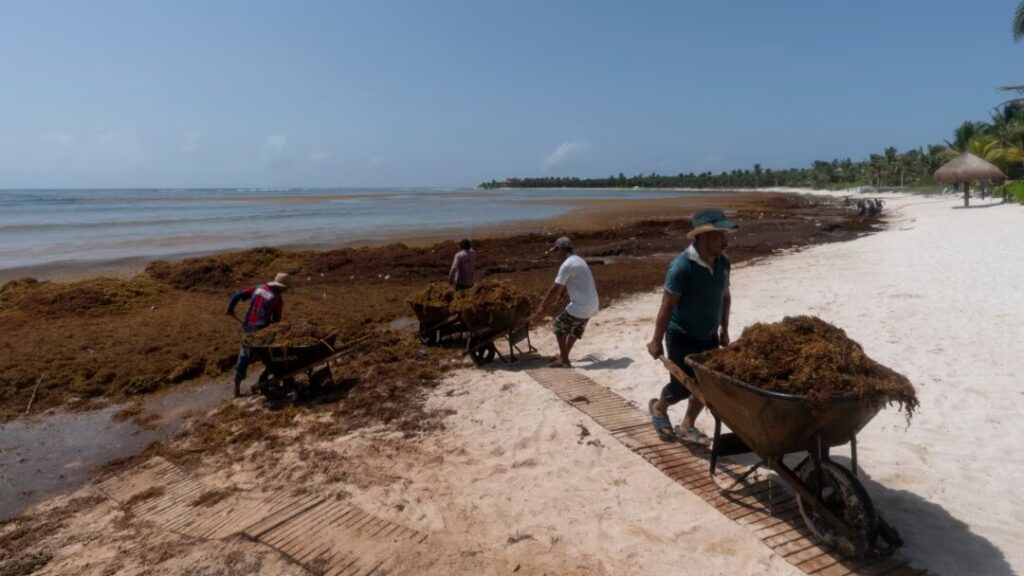BELMOPAN (Reuters) — Belize is developing a pilot project to convert the masses of foul-smelling sargassum seaweed swamping its pristine beaches into biofuel, its prime minister said in a statement published by regional Caribbean bloc CARICOM this week.
Many Caribbean countries depend economically on drawing travelers from around the world to their white sand beaches, but since 2010 heaps of rotting seaweed have been massing on the shores for reasons scientists do not yet fully understand but suspect are related to climate change.
Floating sargassum provides shelter and food for marine animals but as it washes ashore it can smother ecological habitats and begins to rot, becoming harmful to humans.
Belize Prime Minister John Briceno said in the statement the $50 million facility, result of a public-private partnership with German company Variodin, would convert municipal solid waste and sargassum into diesel fuel replacements.

Floating sargassum provides shelter and food for marine animals but as it washes ashore it can smother ecological habitats and begins to rot, becoming harmful to humans.
Belize Prime Minister John Briceno said in the statement the $50 million facility, result of a public-private partnership with German company Variodin, would convert municipal solid waste and sargassum into diesel fuel replacements.
Briceno said that while complete mitigation is no longer possible, control is within reach.
“Research conducted shows that conversion of sargassum into the Belize energy mix is a viable solution to the problem,” he said, without detailing when the plant would be operational.
Reporting by Sarah Morland; Editing by David Gregorio
Our Standards: The Thomson Reuters Trust Principles.
